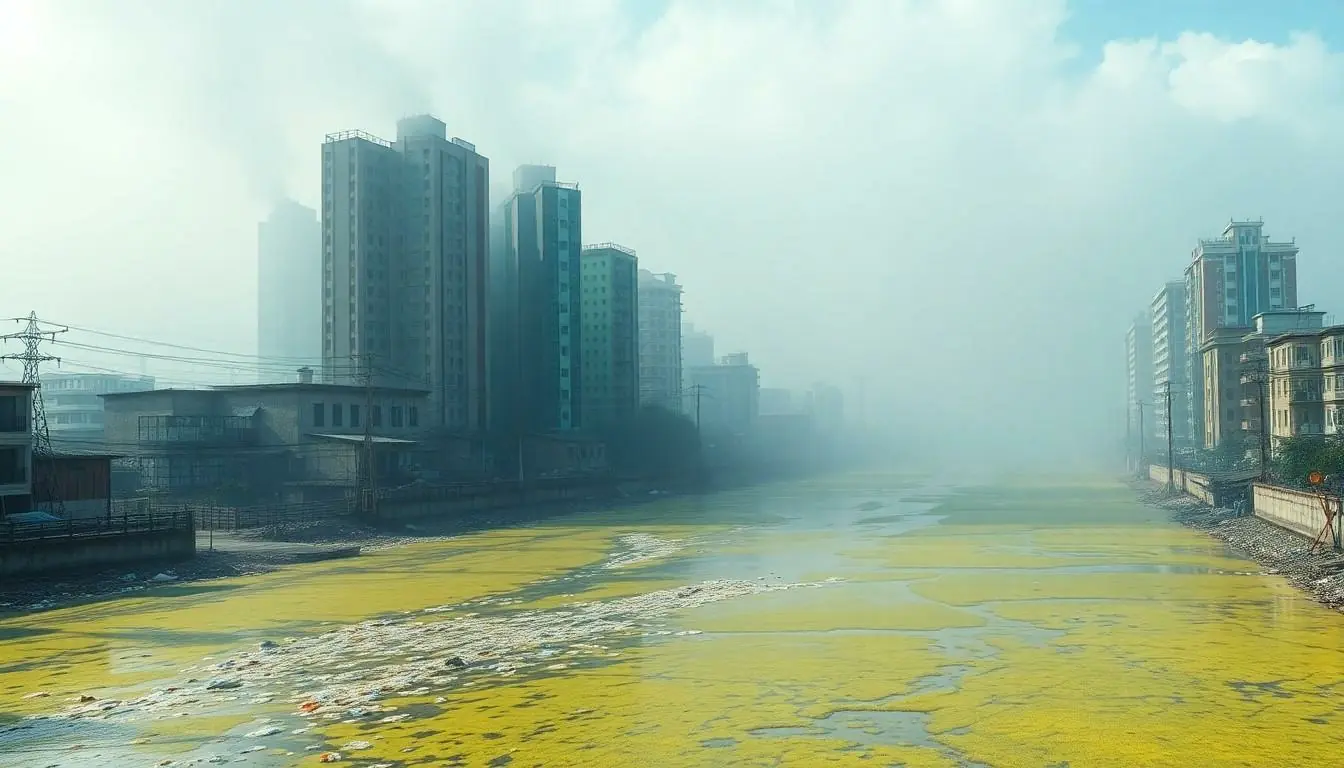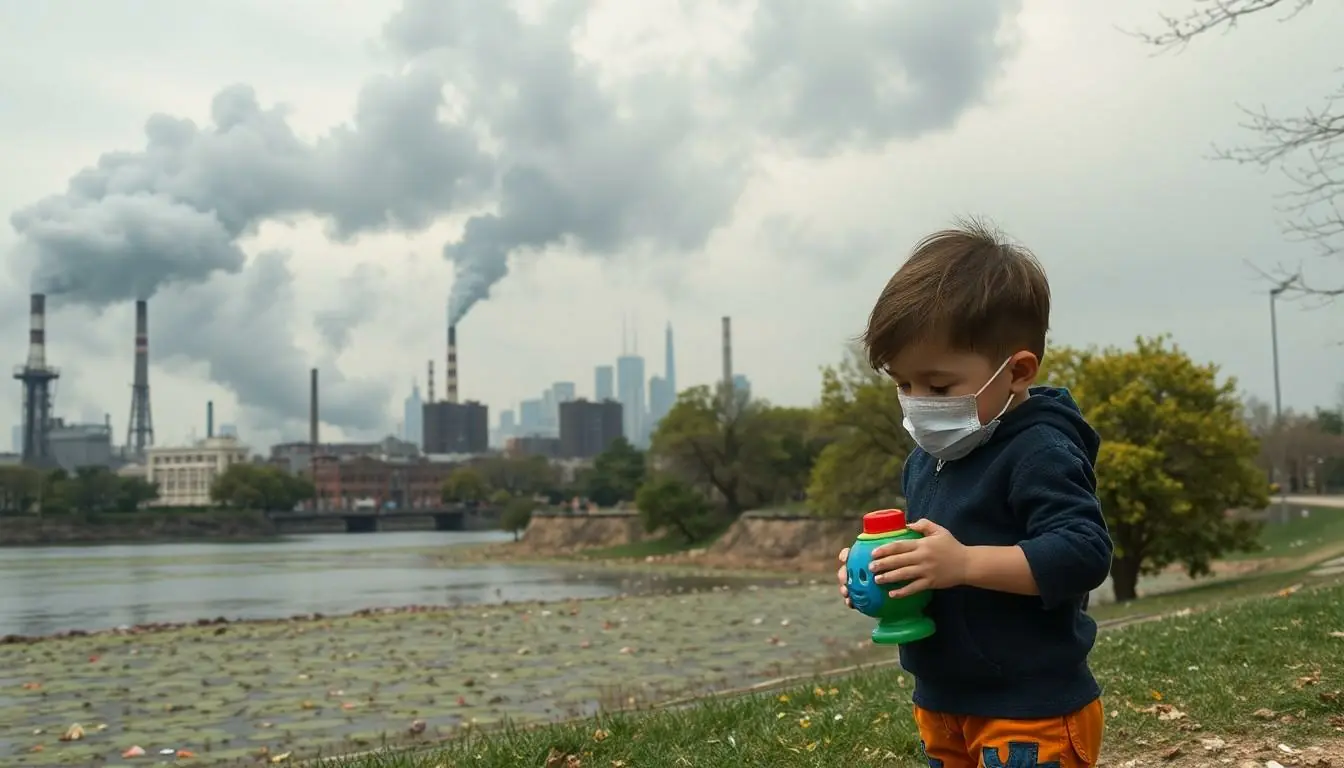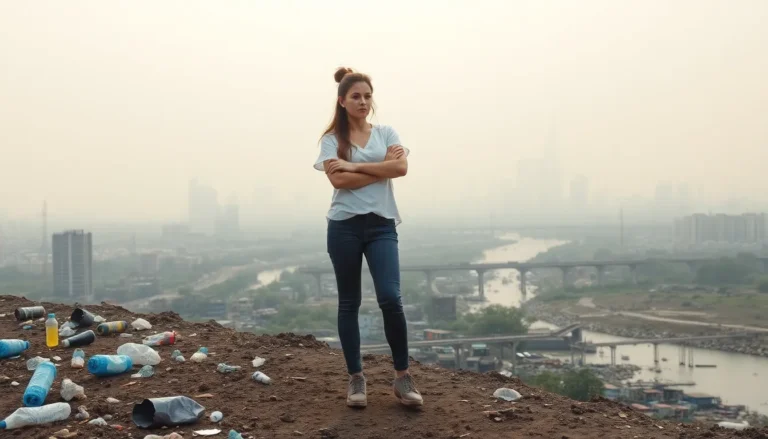Imagine a world where humans are the ultimate eco-wrecking crew, wielding pollution like a master artist with a paintbrush. It sounds absurd, but the truth is that our actions have a profound impact on ecosystems. While nature has its own ways of changing and adapting, it’s the human touch—often a messy one—that truly shakes things up.
Table of Contents
ToggleUnderstanding Pollution and Ecosystems
Pollution plays a crucial role in shaping ecosystems. Human activities significantly contribute to ecosystem changes through various forms of pollution.
Definition of Pollution
Pollution refers to the introduction of harmful substances into the environment. These substances disrupt natural processes and degrade air, water, and soil quality. Common pollutants include chemicals, waste products, and noise. Their presence can harm living organisms and alter habitats. Over time, pollution leads to biodiversity loss and ecosystem imbalance.
Types of Pollution
Several types of pollution impact ecosystems, each with distinct characteristics.
- Air Pollution: Emissions from vehicles, industries, and agriculture release harmful gases and particulate matter. Respiratory issues in humans and wildlife often result from exposure to these pollutants.
- Water Pollution: Contaminants like heavy metals, pesticides, and plastics enter water sources. Drinking water becomes unsafe, harming aquatic life and the animals that depend on these ecosystems.
- Soil Pollution: Chemicals from fertilizers and pesticides leach into the ground. Soil quality declines, affecting plant growth and the animals that rely on plants for food.
- Noise Pollution: Industrial activities and transportation generate excessive noise. Disruption of animal communication and breeding patterns occurs in species sensitive to sound.
Each type of pollution alters ecosystems, highlighting the urgent need for awareness and action.
Human Impact on Ecosystems

Human actions significantly alter ecosystems, often through pollution. This leads to dire effects on natural environments and their inhabitants.
Historical Examples of Ecosystem Changes
Industrial activities introduced pollutants into the environment during the late 19th and early 20th centuries. The Great Smog of London in 1952, caused by coal-burning emissions, resulted in thousands of premature deaths and demonstrated how air pollution affects human health. DDT, a pesticide widely used from the 1940s until the 1970s, decimated bird populations, particularly the Peregrine Falcon, by thinning eggshells. Such historical events highlight the extensive damage pollution inflicts on ecosystems and species survival.
Modern-Day Challenges
Current pollution types include microplastics, which infiltrate marine habitats and endanger aquatic organisms. Increased industrial runoff contributes to eutrophication, leading to oxygen depletion in water bodies and harmful algal blooms. Urban development expands impervious surfaces, resulting in water quality declines and increased flooding during storms. Wildlife faces habitat destruction due to pollution, making areas uninhabitable. Recognizing these challenges drives necessity for urgent action to mitigate pollution effects on ecosystems.
The Role of Pollution in Ecosystem Change
Pollution plays a central role in altering ecosystems. It introduces harmful substances that lead to significant changes in environmental balance.
Mechanisms of Change Induced by Pollution
Air pollution degrades air quality, affecting respiration in animals and plants. Water pollution occurs through contaminants entering waterways, leading to toxic environments for aquatic life. Soil pollution results from hazardous waste infiltrating the ground, impairing plant growth and soil health. Noise pollution disrupts animal communication, affecting mating and survival. Each mechanism compounds existing environmental stressors and exacerbates ecosystem instability.
Consequences for Biodiversity
Biodiversity suffers greatly due to pollution’s direct impacts. Species extinction rates increase as habitats degrade and resources dwindle. Air pollution contributes to respiratory diseases in wildlife, diminishing populations. Water pollution harms aquatic organisms, leading to significant declines in fish and other species. Soil pollution affects plant diversity, resulting in monocultures and reduced food sources for various animals. Awareness of these consequences becomes essential to developing effective conservation strategies.
Alternative Views on Human Influence
Human actions extend beyond merely causing pollution; they can also contribute positively to ecosystems. These contributions warrant exploration amid discussions of environmental impact.
Conservation Efforts
Conservation efforts play a crucial role in restoring and preserving ecosystems. Organizations like the World Wildlife Fund (WWF) and Nature Conservancy lead initiatives to protect endangered species and habitats. Many regions implement legal protections for wildlife, such as creating national parks or reserves. Restoration projects, like wetlands restoration, aim to revive local biodiversity while enhancing natural water filtration. Engaging local communities also proves essential in promoting sustainable practices. Educating the public about ecological balance fosters a sense of responsibility for preserving nature.
Positive Human Contributions to Ecosystems
Positive human contributions to ecosystems further illustrate the complex relationship between people and the environment. Reforestation, for instance, mitigates climate change while providing habitat for numerous species. Urban gardening initiatives enhance urban landscapes, promote local food production, and support pollinator populations. Conservation agriculture practices maintain soil health while increasing crop yields. Eco-friendly technologies, such as renewable energy sources, reduce carbon footprints and diminish dependence on fossil fuels. Collaborative research between scientists and communities leads to innovative solutions that support ecosystem resilience.
Pollution undeniably shapes ecosystems in profound ways. While humans often act as disruptors through harmful practices, there’s also a growing recognition of their potential to foster positive change. The duality of human impact highlights the urgent need for responsible actions that mitigate pollution and promote ecological balance. By embracing sustainable practices and supporting conservation efforts, individuals can contribute to healthier ecosystems. As awareness increases, so does the opportunity to transform the narrative from one of destruction to one of stewardship. The future of the planet hinges on this shift in perspective and action.





